

(By Mo Tingting)Ever since the turn of the 20th century, Shanghai has been regarded as the symbol of fashion and charm in China. Despite the speed and thickness of this modern city, there is unique delicacy and beauty that lurks underneath. Shanghai’s Shikumen lanes were written by writers infatuated with the lane’s architecture. And every year, thousands of young Chinese migrants flock to Shanghai Film Park, either hoping to get a foothold in Shanghai or pursuing their dream of becoming the next Jackie Chan. Now, Let’s wander around old Shanghai to find its fashion and charm.
Shikumen: A valuable architectural legacy
What exactly is Shikumen architecture and why is it so unique to Shanghai? Shikumen, literally meaning “stone-framed door”, is a traditional Shanghainese architectural style resembling Anglo-American terrace houses or townhouses. The statue of Shikumen buildings in Shanghai, or the so-called lane, is the same as Hutong in Beijing.
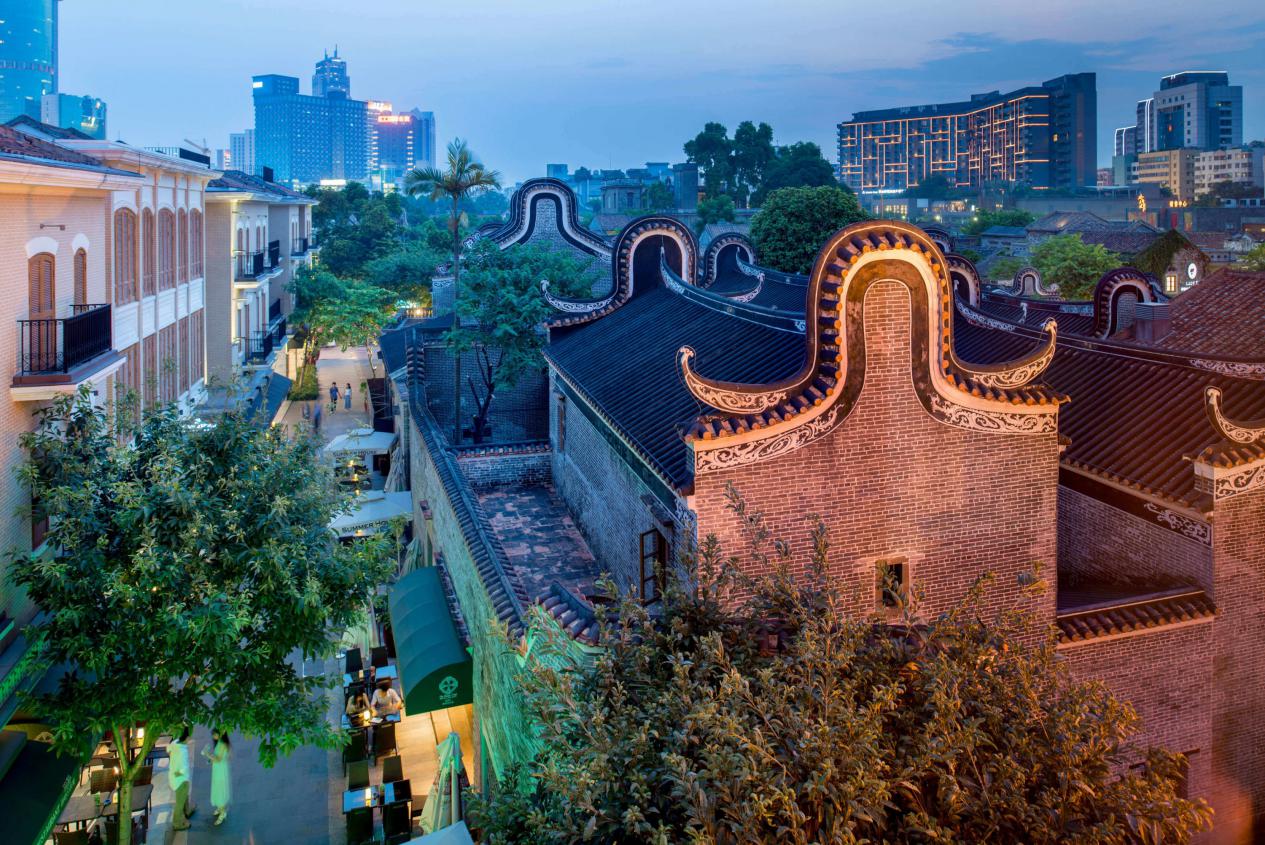
The origin of Shikumen buildings can be traced back to the 1860s. An influx of refugees moved from Jiangsu and Zhejiang to Shanghai. To accommodate this influx of refugees, local merchants were encouraged to invest in housing. To use the limited land more efficiently, the houses built were in most cases rows of Shikumen-style buildings. These days, Shanghai people living in the stone gatehouses would listen to some western gramophone records and drink coffee, leading a somewhat westernized petty bourgeoisie life.
The overall framework of the residence was in the architectural styles of the courtyards in south China. The indoor furniture and necessity arrangement were also designed based on the representative architectural styles. While from the outside, the block of residences looked like western-style townhouses. Moreover, the lintel was usually constructed with Chinese traditional bricks and black tiles.
What makes a Shikumen header an architectural tapestry so emblematic of Shanghai? The author Jie Li’s book Shanghai Homes said, “The grey stone pediment, shaped in a triangle or semi-circle, contains designs that range from the simple to the elaborate. In their heyday, headers reflected the economic class of the neighborhood. Some lanes had cookie cutter European flower designs stamped overhead in narrow alleys, other lanes enjoyed beautiful and intricate carvings that more well-off residents enjoyed. The most unique were standalone Shikumens that captured the spirit and influence of a household, with carefully chosen symbols of peaches for longevity or an elephant to signify wisdom.”
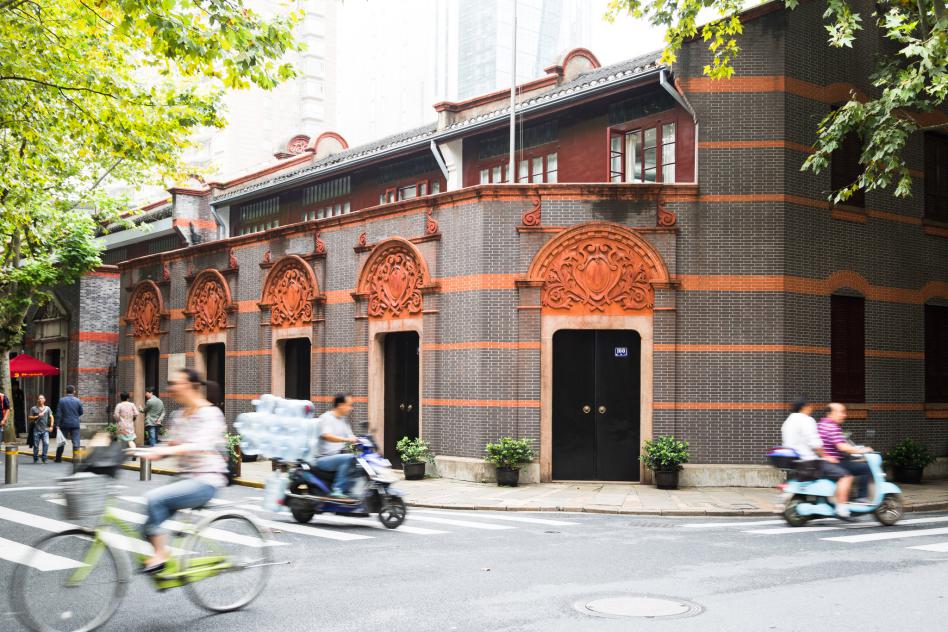
Since the 1990s, Shanghai began a new wave of renovation and development, demolishing many Shikumen-style buildings. It was only when more and more of these houses were replaced by skyscrapers that people began to realize such monuments of Shanghai’s past deserve to be preserved. Nowadays, more and more people are wandering through the century-old history of Shanghai as a nostalgist or a seeker. Different visitors are attracted by Shikumen with its various characteristics. Young people like Shikumen because of those old stories and the charming mystery. Foreigners enjoy Shikumen because of the fresh feelings. Wandering in the lane of Shikumen, you will feel as if you are walking into the movie plot.
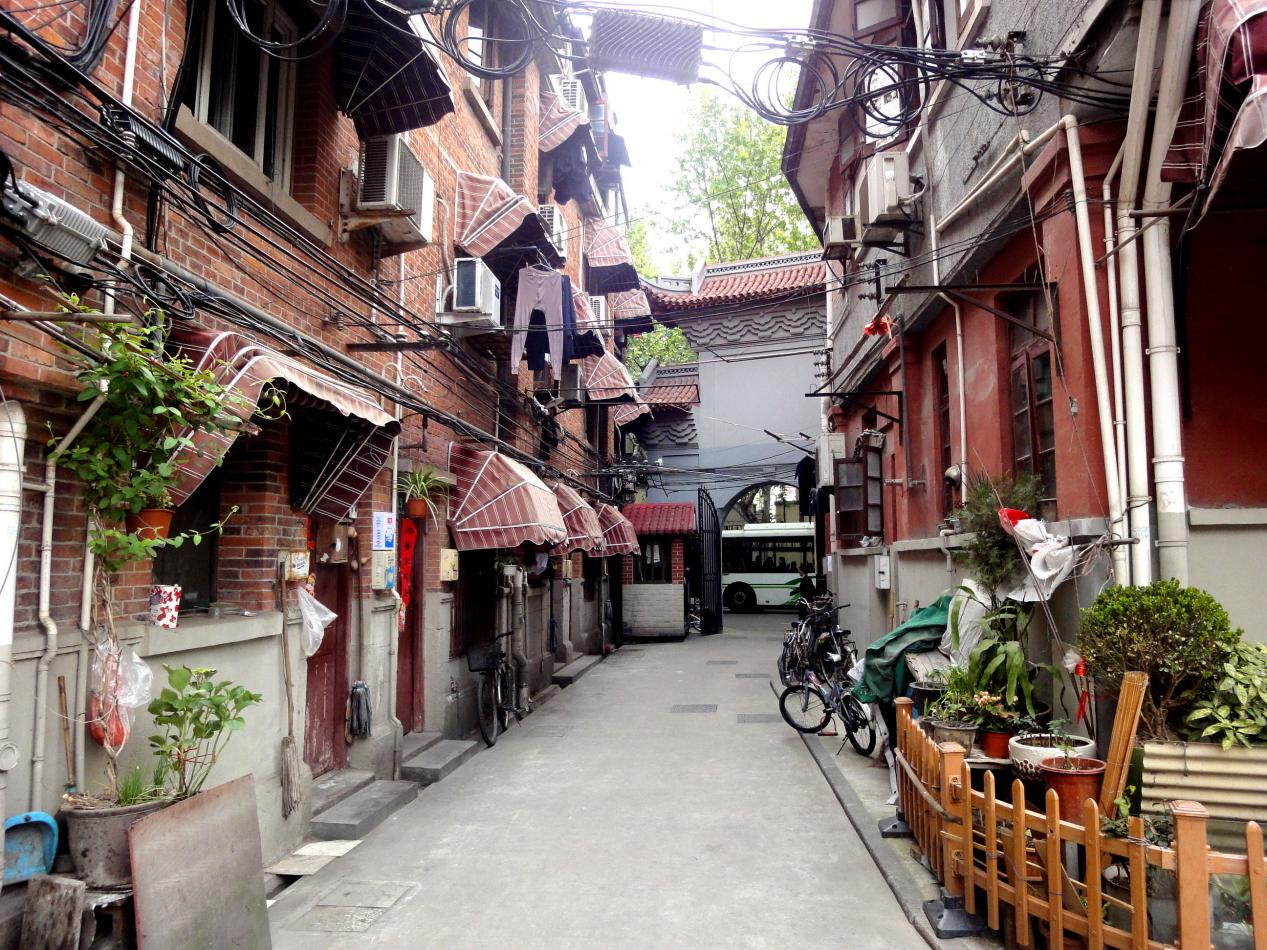
Tips:
A film and television paradise
If you see old Shanghai in a movie, you are actually looking at the Shanghai Film Park. The old Shanghai is one of the highlights of Shanghai Film Park. Shanghai Film Park, one of China’s top ten film and television bases, is a national 4A-level tourist attraction. Invested and constructed by Shanghai Film Group, it is a theme park integrating film and television shooting, tourism and cultural dissemination. The park consists of the urban style of old Shanghai, the backstage of all the film made in the park, the standard European style garden, the former residence of Song Ziwen, the Art & Design Academy located on the Fenyang Road and other scenic spots.
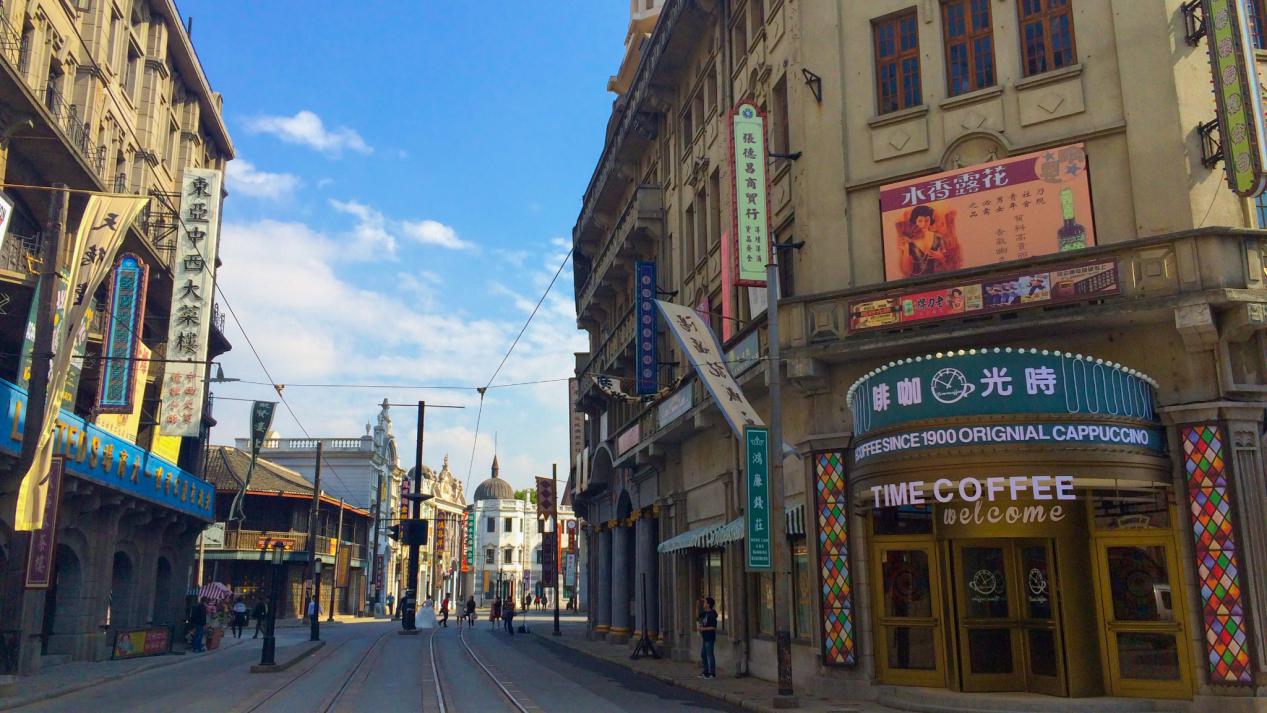
The Shanghai Film Group produces lots of movies and television shows proven in China. Here you can see the wax figures of Zhou Xun, Ruan Lingyu, Shangguan Yunzhu, Gong Li, along with other famous superstars, to clothing show from the film. Over 100 movies or TV series have been shot in this base, so if you are interested in Chinese TV series, you may find some very familiar scenes. While visiting the park, if fortunately, visitors will get a chance to see the process of film shooting.
It is like Universal Studios in California, but it is a lot less ritzy and like an amusement park. Tourists can walk around on the sets and watch productions being shot, and they can also playact and pose in the sets. A walk through the park is an eerie experience. A diverting collection of western-style buildings and props jump into horizon now and then, including a Tudor-style winery and a Titanic-like ferry made with cardboard. Walking in the film park is like walking in the movie scene and experiencing the mood of the actors and actresses in the story. But these movie scenes are mostly special and not real. From one angle, you think you see a house, but from the other angle, it’s only an outside wall and there is nothing inside. When you see an old tram running normally and looked very good, everything is an illusion.
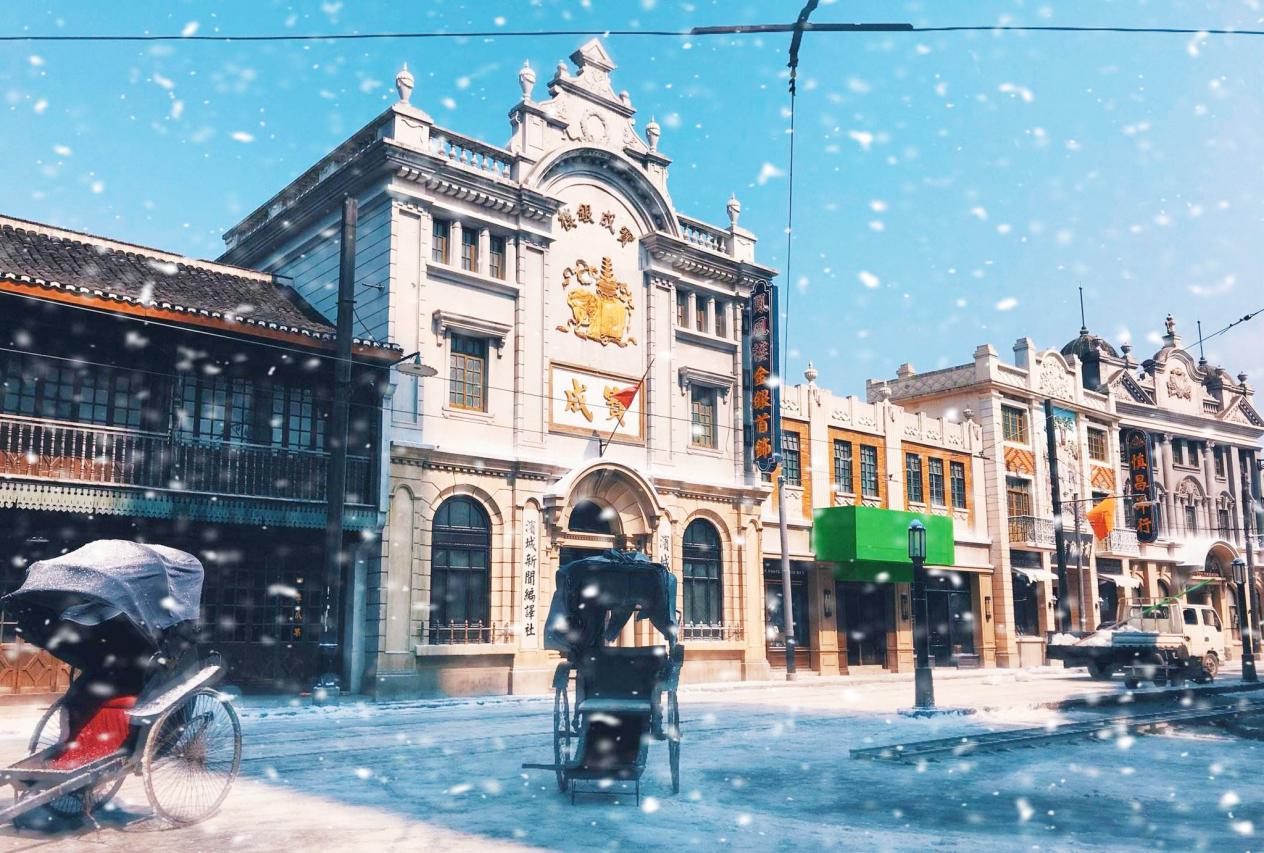
The movie scene is interesting and beautifully decorated with all the stage property scattered around and people dressed up resting near the scenes. Nanjing Road, Sincere Mall, the Moller Rental property, that old Song, Xujiahui Catholic Chapel and also the tram, the telephone booth are filled with old Shanghai style, which takes people to that materialistic age. As you wander around the empty streets, you might feel like you’re the only one left after the apocalypse.
Tips:
Source: China-ASEAN Panorama
桂ICP备14000177号 Copyright@2006-2013 Guangxi China-ASEAN Panorama Magazine Agency Co., Ltd. All Rights Reserved